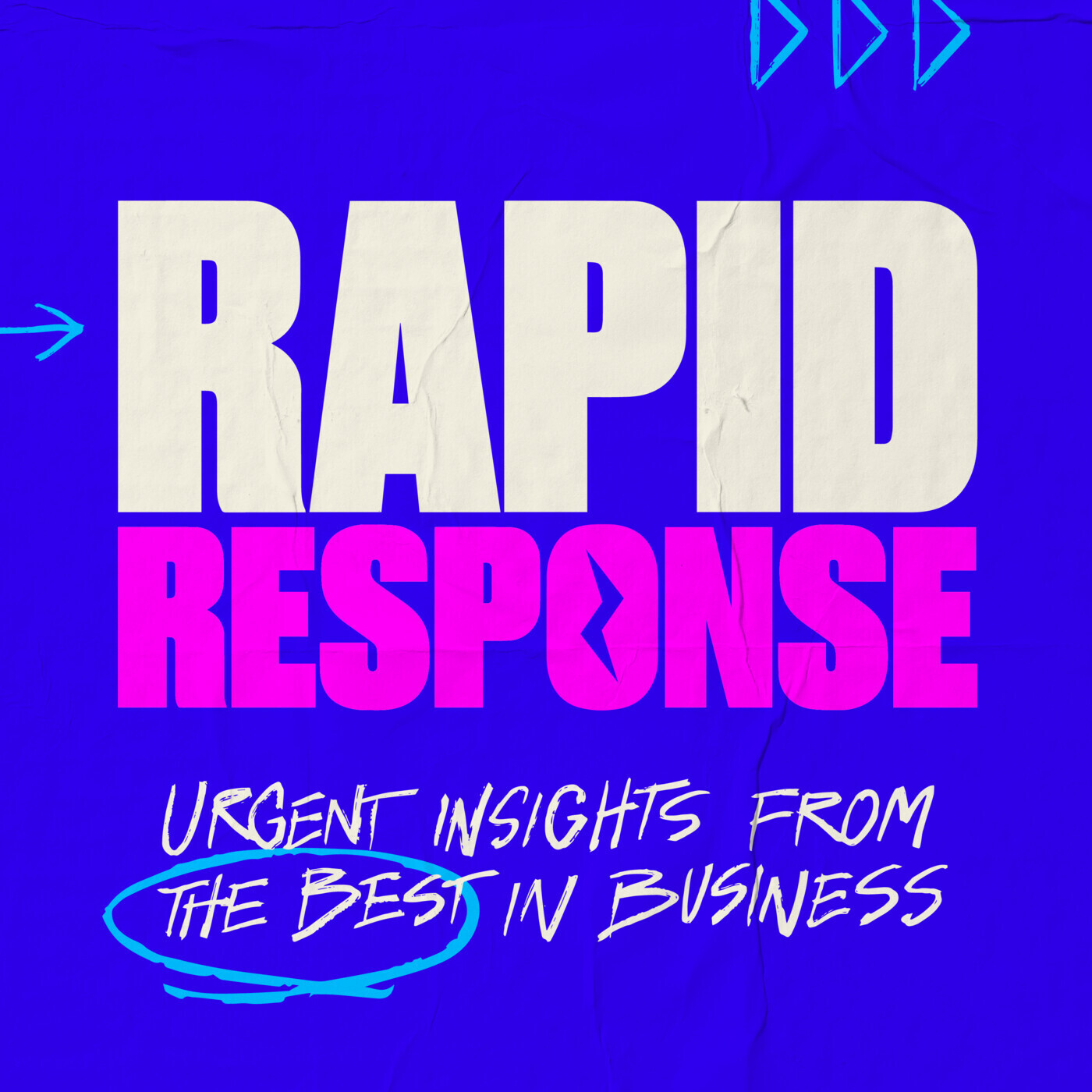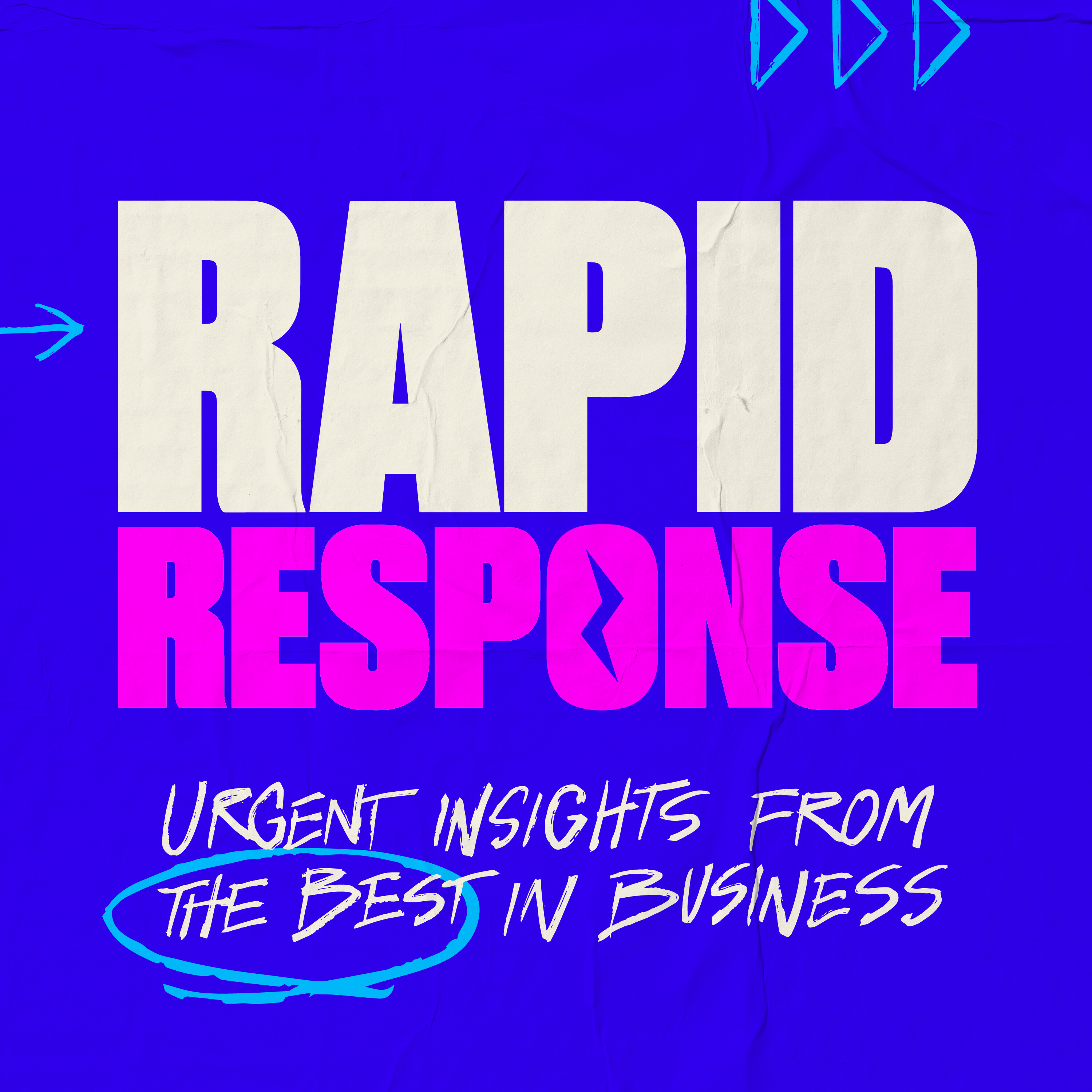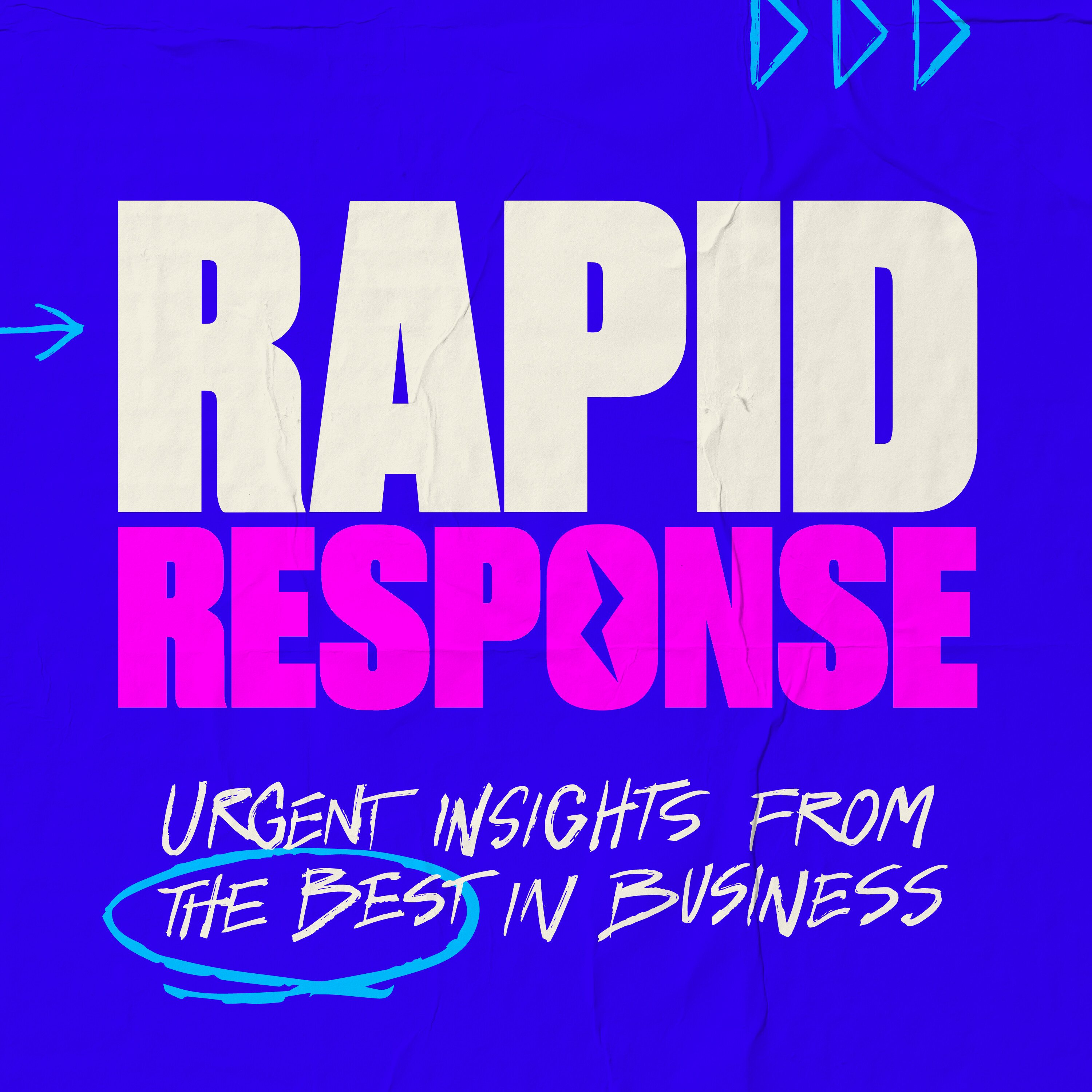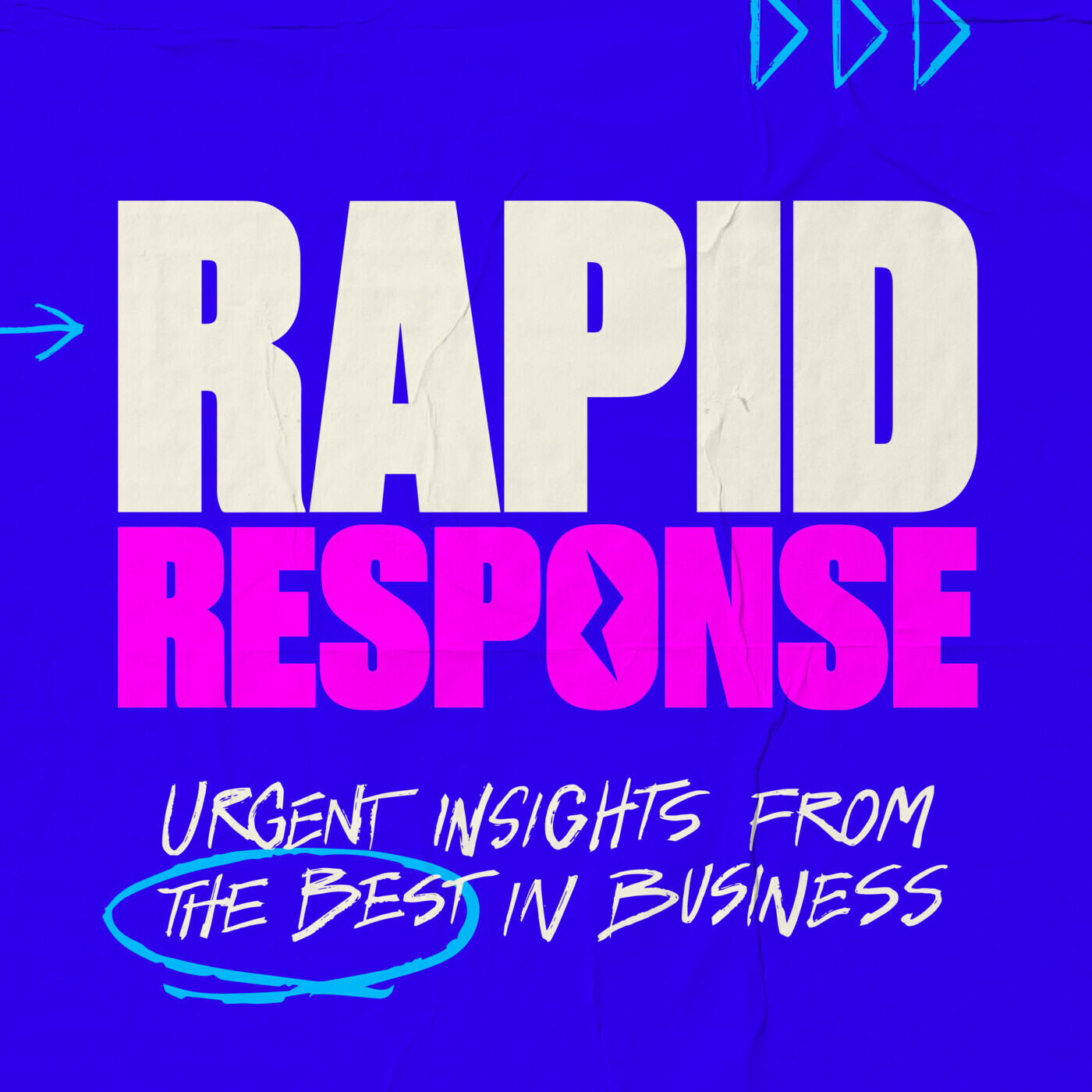
September 10, 2024 • 30min
Rapid Response: 2024 is the most significant time in human history (Encore)
Masters of Scale
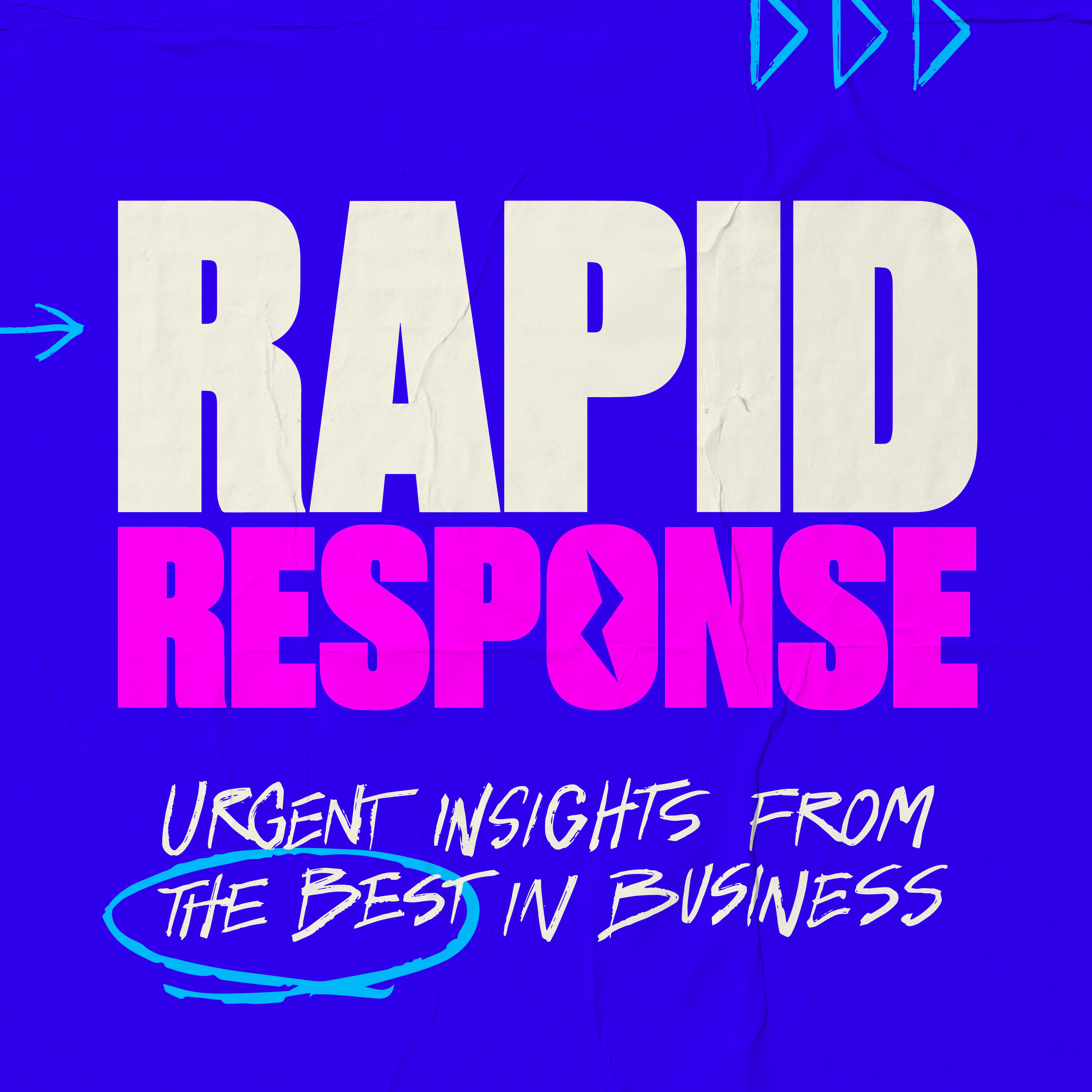
Key Takeaways
- The future is not a noun, it's a verb - It's something we actively shape through our decisions and actions, not just a predetermined outcome
- We are biologically wired for short-term thinking, but need to develop a longer-term perspective to address global challenges
- Everyone is a futurist - Our daily actions and decisions, even small ones, shape the future
- Business leaders need to reconnect with the moral imperative of their work and consider impacts on future generations
- The decisions we make in the next 5-10 years will have outsized impact on the trajectory of humanity for centuries to come
- We need to envision positive futures to work towards, not just dystopian scenarios
- AI and other emerging technologies have immense power to shape the future - we need thoughtful governance
- Practices for "futuring": Ask if you're being a "great ancestor", write letters to your future self, develop "death awareness"
Introduction
Ari Wallach is a futurist and host of the new PBS series "A Brief History of the Future". In this episode, he discusses the concept of "futuring" - actively shaping the future through our decisions and actions today. Wallach argues that we are living through one of the most consequential periods in human history, with decisions made in the next 5-10 years having outsized impact on humanity's trajectory for centuries to come. He explores why humans struggle to think long-term and how we can develop better "futuring" practices.
Topics Discussed
What is a Futurist? (3:13)
Wallach explains that futurists don't predict the future, but rather:
- Look at major trends and megatrends across domains like climate, science, psychology, spirituality
- Develop multiple scenarios of possible futures
- Help organizations prepare for different potential outcomes
- Ask which futures we actually want to see become reality
He emphasizes that "The future is not a noun. It's not this thing out there that we're heading towards that's going to kind of wash over us. The future is very much a verb."
Biological Wiring for Short-Term Thinking (7:24)
Wallach discusses research showing humans are biologically wired to focus on the short-term:
- fMRI studies show people think of their future selves more like strangers than their current selves
- This wiring helped with survival historically (e.g. running from predators)
- But it makes it challenging to address long-term issues like climate change
He notes that even minor interventions like writing letters to your future self can help people make better long-term decisions.
Everyone is a Futurist (11:13)
A key premise of Wallach's work is that everyone shapes the future through their actions:
- Even small daily actions like how we say goodbye to our children shape the future
- Business decisions around AI, biotech, etc. will have major long-term impacts
- The decisions we make in the next 5-10 years will dictate humanity's course for centuries
He argues we need to be more conscious of our role in shaping the future.
Business Short-Termism vs Long-Term Thinking (13:13)
Wallach discusses the tension between short-term business incentives and long-term thinking:
- Many of the longest-running companies (1000+ years old) are in Japan and run like family businesses
- They consider impacts on future leaders/employees, not just current stakeholders
- This requires embracing the moral imperative and legacy of the business
- Future generations are the most marginalized stakeholders - they don't vote or have a voice
He suggests techniques like having people advocate from the perspective of future generations in decision-making.
Navigating Cultural/Political Divides as a Business Leader (17:10)
Wallach acknowledges the challenges business leaders face in speaking out on social issues:
- Many feel confused about how assertive to be given potential backlash
- But he argues leaders need to engage and "reconnect with the moral imperative of their business"
- The key is finding ways to communicate that don't alienate large portions of stakeholders
Technology and AI Through a Futurist Lens (24:45)
On emerging technologies like AI, Wallach argues:
- Much current AI development is focused on near-term business interests of a small group
- We need more focus on using AI to address big challenges like sustainability
- The power of AI tools today is comparable to the atomic bomb - we need thoughtful governance
- We're living through an "Oppenheimer moment" but not treating it with appropriate gravity
He advocates for a "public AI infrastructure" and "Manhattan project for flourishing futures".
Practices for "Futuring" (27:43)
Wallach suggests several practices individuals can adopt to think more long-term:
- Ask "Am I being a great ancestor?" when making decisions
- Write letters to your future self
- Develop "death awareness" rather than "death anxiety"
- Being aware of mortality can help people think beyond their own lifespan
- This allows for more comfort in considering long-term impacts
He emphasizes these don't require major life changes, just small shifts in perspective.
Conclusion
Ari Wallach makes a compelling case that we are living through one of the most consequential periods in human history. The decisions we make in the coming years - particularly around emerging technologies like AI - will shape humanity's trajectory for centuries to come. While humans are biologically wired for short-term thinking, we can and must develop better "futuring" practices to address global challenges.
For business leaders, this means reconnecting with the moral imperative and legacy of their work. It requires considering impacts on future generations and stakeholders, not just near-term profits. For individuals, it involves small shifts in perspective - asking if we're being "great ancestors", writing to our future selves, developing comfort with our mortality.
Ultimately, Wallach's message is one of agency and responsibility. The future is not predetermined - it's something we actively shape through our choices. By adopting a longer-term, more conscious approach to "futuring", we can work towards creating the positive futures we want to see.

